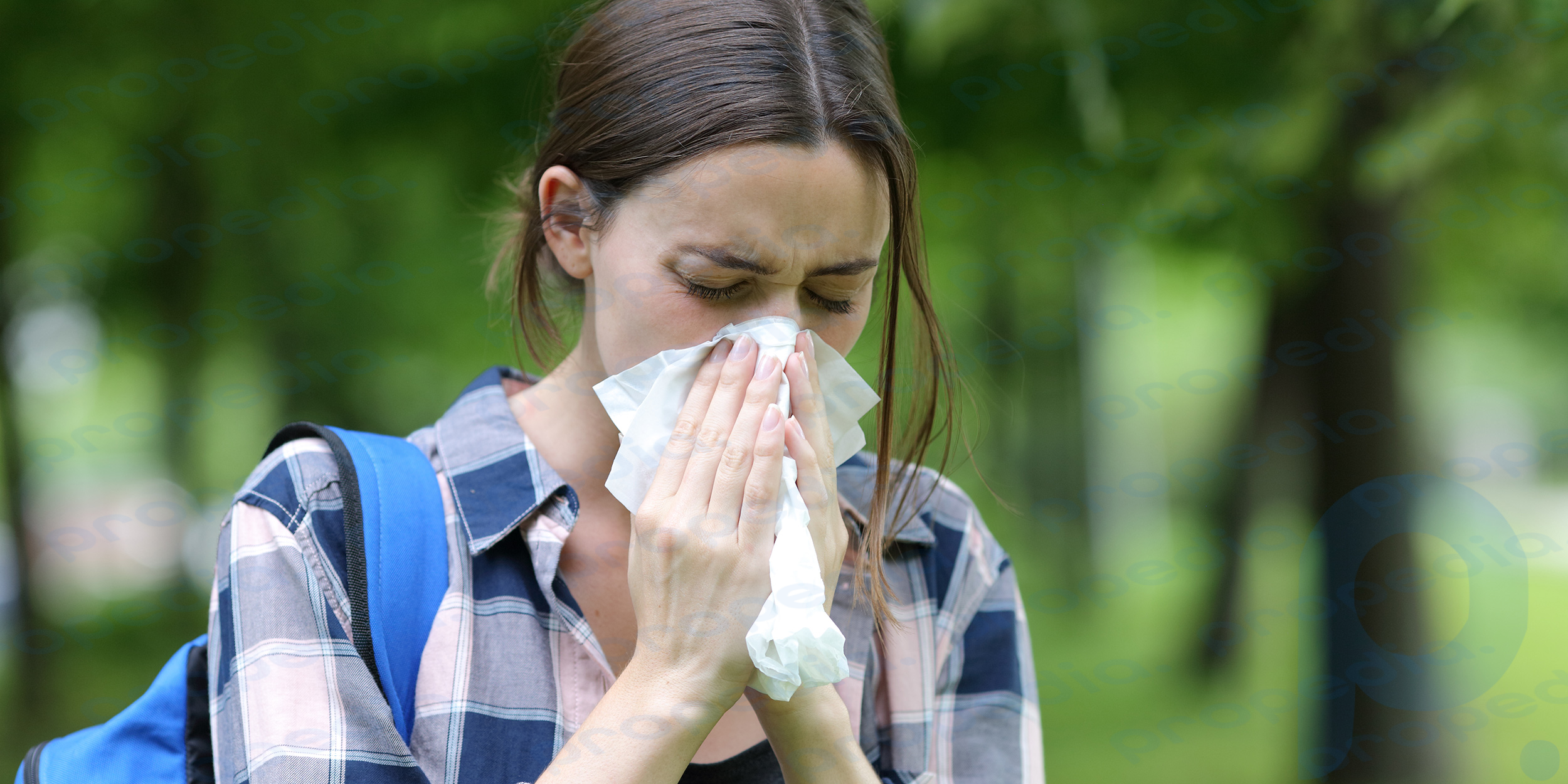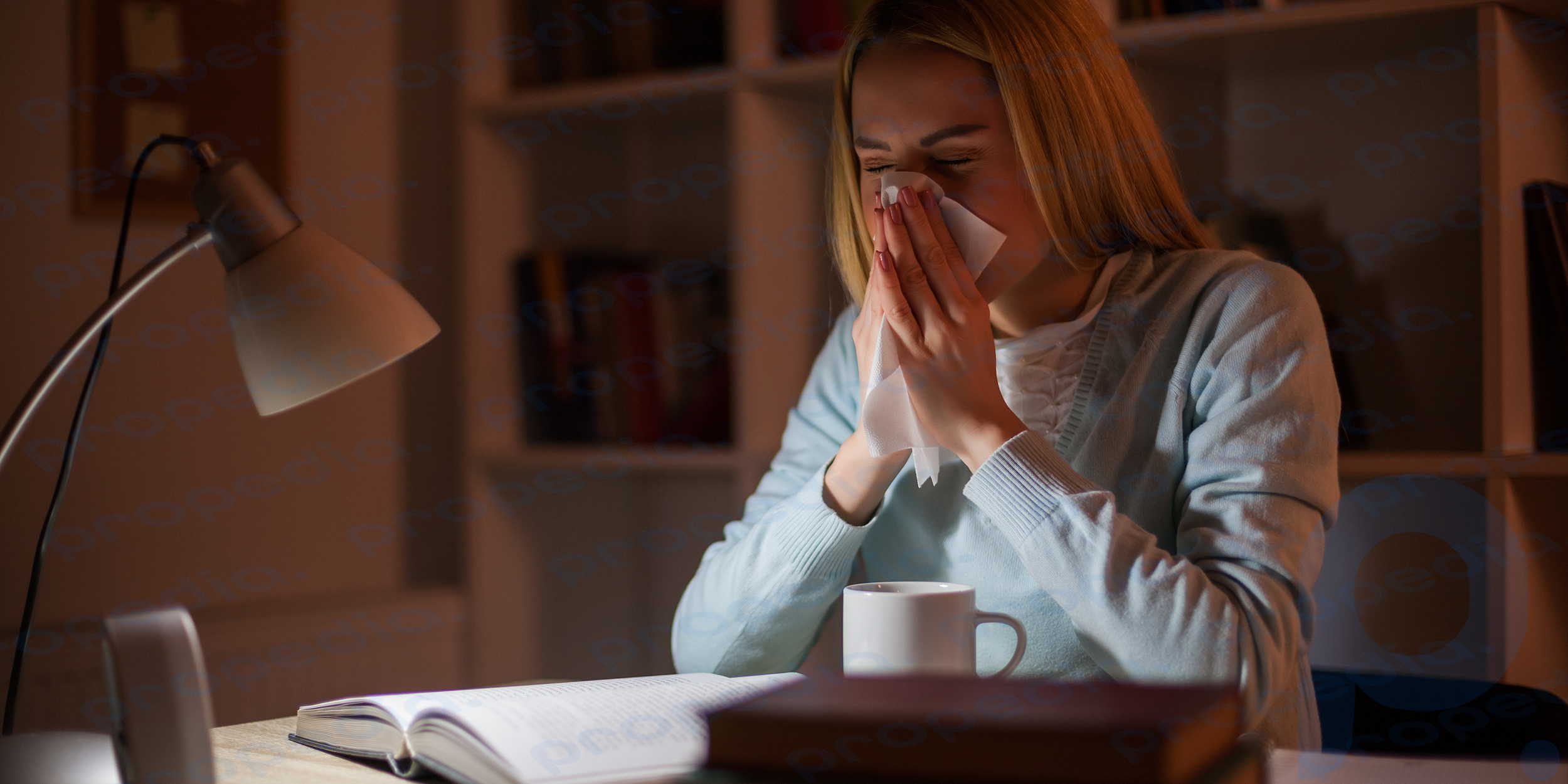Itching, sneezing and a stuffy nose are unpleasant symptoms in themselves, but when drowsiness and apathy are added to them, it becomes really difficult. We'll tell you how to help yourself if allergies hit you at the most inopportune moment.
Why do you feel drowsy with seasonal allergies?
A feeling of lethargy and a desire to lie down often arises against a background of general malaise. Hay fever, or allergic rhinitis (this is the official name of the disease), is the immune system’s response to pollen from flowering plants, which the body mistakes for a harmful substance. It is manifested by itching in the throat, swelling of the mucous membrane, nasal congestion and discharge from it. Sometimes symptoms include coughing and difficulty breathing. The oxygen saturation of the body decreases, so it goes into energy conservation mode: it suppresses performance and cognitive functions.
A person with allergies also feels tired because symptoms can worsen at night and interfere with normal sleep. In addition, preparing for exams often forces you to sit longer on your tickets, and the mandatory 7–8 hours of rest turns into 4–5.
Some antihistamines can also cause drowsiness. Mainly those that belong to the first generation of antiallergic drugs - the active ingredients in them have a sedative effect.
Allergy symptoms can be alleviated with the help of second-generation antihistamines with fexofenadine - this active substance effectively blocks the work of histamine and does not cause drowsiness. The effect appears within an hour after taking the drug and lasts throughout the day.
To learn moreHow to Stay Focused During Allergy Season
Review daily habits

To remove unpleasant allergy symptoms, you need to completely eliminate contact with the pathogen. In the case of hay fever, this is almost impossible: the grass and trees in the city will not go anywhere, and it is unlikely that you will be able to lock yourself in an apartment. You need to go to consultations, and the exams themselves are rarely conducted remotely. But you can try to minimize the risks. For this, experts recommend:
- Stay indoors on dry and windy days. Especially in the morning. The concentration of pollen in the air at this time is maximum. The best time for walking is in the evening after rain.
- Take a shower immediately after returning from the street. This will help wash off any stuck-on pollen. For the same reason, you should wash things more often and not dry them in the open air.
- Wear a mask and sunglasses. They will retain some of the pollen and protect the respiratory tract and eyes from irritation.
If studying for exams takes place in an apartment rather than a library or coworking space, it makes sense to remove carpets and other textiles. At least for the duration of the session. The fewer places for allergens to accumulate in a room, the easier it will be to stay in it. It is also worth regularly carrying out wet cleaning.
Use a humidifier and air purifier
If the room has dry air, pollen and other allergens are suspended. It is necessary to maintain humidity within 40–60%, then the concentration of allergens decreases faster. For such indicators, a regular household humidifier is quite enough. In addition, humidified air does not irritate the nasal mucosa, so breathing becomes easier.
The severity of seasonal allergies may vary from year to year. Temperature, precipitation, wind direction and speed affect the concentration of pollen in the air. Therefore, for example, in a rainy and windy spring it may seem that the problem has receded. But hay fever is a chronic disease. Therefore, thinking about buying an air purifier is a healthy decision. As a rule, such devices are equipped with HEPA filters. They are able to remove most microscopic particles of dust, pollen and other allergy triggers.
Improve sleep

Exams are quite a stressful situation in itself, and coupled with manifestations of allergies, they can seriously exhaust the body. Healthy sleep during a difficult period is extremely necessary. No matter how much you feel the urge to sit until dawn over your textbooks, you should try to stick to at least 8 hours of rest. In addition, basic sleep hygiene rules can help:
- Follow the regime. It is important to get up and go to bed at approximately the same time, even on weekends.
- Don't use gadgets before bed. Instead of getting stuck in your feed, it is better to take a bath, do light stretching or meditate - this will help you relax and take your mind off your studies.
- Watch your diet. Caffeine, alcohol, and heavy food are not friends for healthy sleep. It’s even better not to drink a lot of liquid a couple of hours before resting.
- Think about your worries in the morning, not in bed. You can schedule 15 minutes at the beginning of the day to “process” your to-do list. The fewer disturbing thoughts you have in your head in the evening, the easier it is to fall asleep.
Find effective therapy
If fatigue persists, an antihistamine may not be appropriate. It should be replaced with a more efficient one. To do this, you need to make an appointment with a specialist. He will select a medicine that will not cause feelings of inhibition.
If seasonal allergy symptoms are interfering with your ability to study for exams, sleep, and live life to the fullest, contacting a specialist is a good solution. He will tell you how to adjust your routine and select the appropriate therapy. For example, second-generation antihistamines with fexofenadine provide relief and do not cause drowsiness. They need to be taken once a day and are less addictive than first-generation drugs. Before taking it, you should definitely consult a specialist.
More detailsThe material is for informational and educational purposes.

Sources:
Hay fever // Mayo Clinic https://www.mayoclinic.org/diseases-conditions/hay-fever/symptoms-causes/syc-20373039
4 Things You Should Know About Allergy-Related Fatigue // Allergy & Asthma Clinic of Fort Worth https://www.allergyfortworth.com/4-things-you-should-know-about-allergy-related-fatigue
M. K. Church and D.S. Church, Pharmacology of Antihistamines // Indian Journal of Dermatology https://www.ncbi.nlm.nih.gov/pmc/articles/PMC3667286/
E. O. Meltzer et al., Fexofenadine: review of safety, efficacy and unmet needs in children with allergic rhinitis // Allergy, asthma and clinical immunology https://www.ncbi.nlm.nih.gov/pmc/articles/PMC8561980/
Seasonal allergies: Nip them in the bud / Mayo Clinic https://www.mayoclinic.org/diseases-conditions/hay-fever/in-depth/seasonal-allergies/art-20048343
Do Humidifiers Help With Allergies? // Penn Medicine: University of Pennsylvania Health System https://www.beckerentandallergy.com/blog/humidifiers-help-allergies
Jae-Won Oh, Pollen Allergy in a Changing Planetary Environment // Allergy, asthma and immunology research https://www.ncbi.nlm.nih.gov/pmc/articles/PMC8914612/
Air Filters // The American College of Allergy, Asthma & Immunology https://acaai.org/allergies/management-treatment/living-with-allergies/air-filters/
What is a HEPA filter? // United States Environmental Protection Agency https://www.epa.gov/indoor-air-quality-iaq/what-hepa-filter
A Study Guide To Getting Sleep During Final Exams // SleepFoundation https://www.sleepfoundation.org/school-and-sleep/final-exams-and-sleep
How to Get a Good Night Sleep When Stressed // The Brain & Behavior Research Foundation https://bbrfoundation.org/blog/how-get-good-night-sleep-when-stressed#:~:text=Avoid%20caffeine%2C%20alcohol%2C%20large%20meals,particularly%20for%20people%20with%20insomnia.

